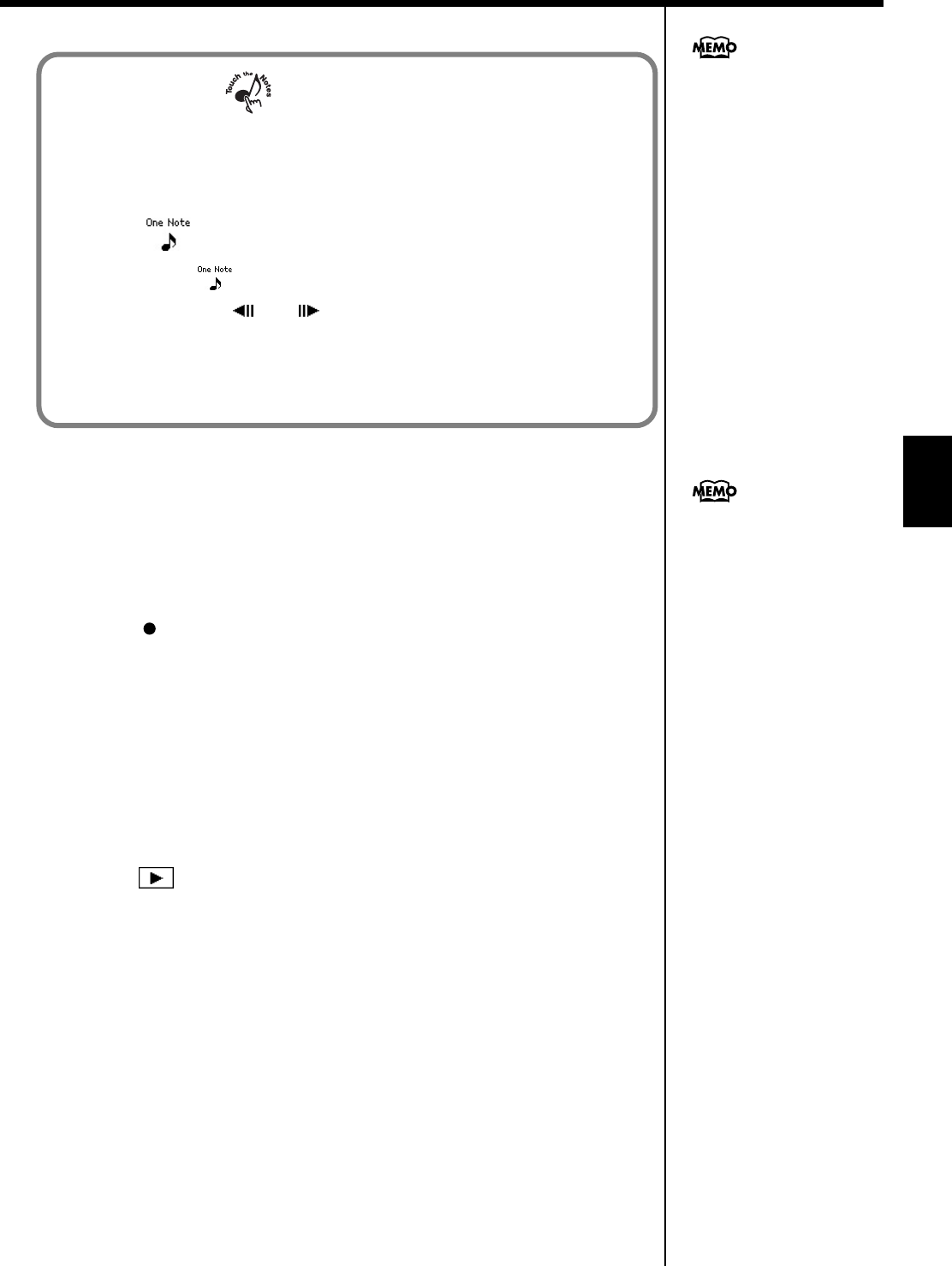
93
Chapter 4 Practice Functions
Chapter 4
Recording Your Performance
Once you are able to play the song, try recording your own performance.
3.
Touch <Rec>.
When the Message screen appears, touch <Close>.
4.
Touch < > on the screen.
You’ll hear a count, and recording begins.
Play along with the accompaniment.
Checking Your Performance
Compare your recorded performance with the example.
5.
Touch <Check>.
When the Message screen appears, touch <Close>.
6.
Touch < > on the screen.
The Check screen display compares the example performance with your own
performance.
Analyze and practice any trouble spots.
❍
3 Changing the practice settings
Immediately after turning on the power, all measures are set for practice at the
original tempo.
In the beginning, you’ll probably want to select specific phrases, and practice that
material repeatedly at a slower tempo.
1.
Touch <Options>.
A screen like the one shown below appears.
Touch the Notes
When you touch a note on the Practice screen, the KR plays that note.
When you trace along the displayed score with your finger, the KR plays the traced
segment.
One Note
When you touch < >, the KR plays the note currently indicated by the bouncing
ball. When you touch < > or < >, you can return or advance one note at a time
to check the notes.
➝ On instruments equipped with the Automatic Keyboard function, the automatic
keyboard will move.
When the Transpose function
(p. 103) is set to ON, the
original tone is sounded when
you touch notes or <One
Note> on the screen.
Changing the Performance
Played Back in the Check
Screen
You can switch the
performance that is played
b
ack by touching the score for
“User” or “Reference” in the
Check screen.
When the keyboard is
displayed in the Check screen,
touch <User> or <Reference>
to switch the performance to
b
e played back.
KR-17_15_e.book 93 ページ 2004年12月6日 月曜日 午後1時54分


















